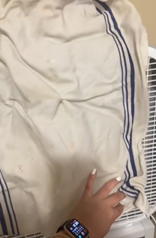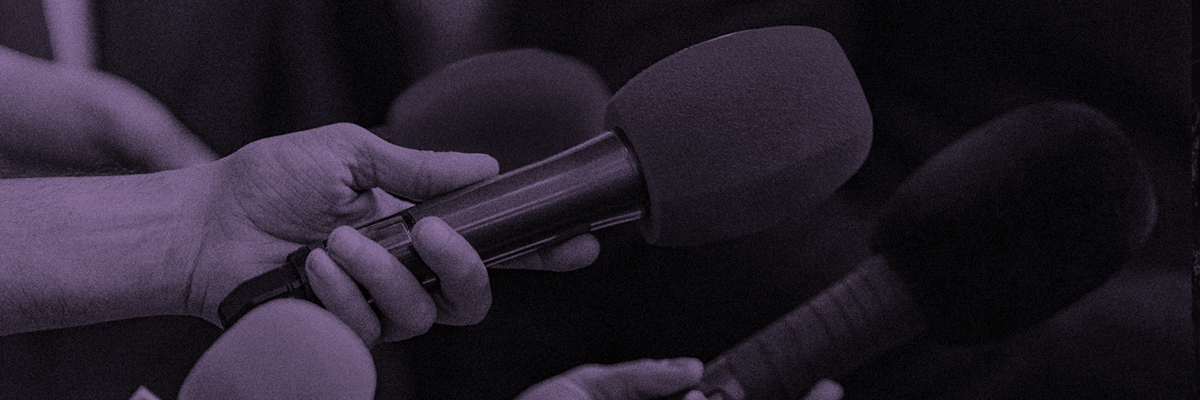Experts are warning against a dangerous new hack which is being popularised on TikTok during this week’s soaring temperatures, as it could risk electric shock.
Consumer safety charity, Electrical Safety First, is urging consumers to avoid a new social trend that could put them at risk, as an amber heat-health alert was issued across parts of England by the Met Office and the UK Health Security Agency.
Brits looking to beat the heat are turning towards videos on TikTok, which are sharing advice on how to make your own ‘AC unit’.
This hack is shown to involve a user taping a frozen towel to their electric fan while in use, in the hope of blowing colder air throughout their home.
The charity is warning people to ignore the ‘hack’ as it could pose a serious safety risk.
Attaching frozen towels to an electric device, such as a fan, risks water coming into contact with the motor, increasing the risk of not only electric shock but damaging your fan completely.
As well as the risk of electric shock, users trying to cut corners with their fan risk short-circuiting the device whilst the excessive weight of the bag attached to the top of the fan will reduce the stability of the fan and increase the risk of it falling over and damaging or obstructing the rotation of the blades.
This comes a year after similar incidents where TikTok and Twitter users tied bags of ice to their fans were reported by the charity.

TikTok user places frozen towel on an electric fan
"Yet again, we are seeing TikTok influencers who are demonstrating 'heat hacks' with their fans which are potentially unsafe,” says Giuseppe Capanna, product safety engineer at Electrical Safety First. “Placing a freezing towel on a plugged-in fan could destabilise the device and cause it to fall over, causing the blades to hit the guard and put the motor under pressure, and could even break the device altogether. The biggest risk comes from the towel, which would eventually thaw and become sopping wet. Water and electricity do not mix and, by copying this hack, water could come into contact with the motor or the plug and its socket, increasing the risk of an electric shock.”
Giuseppe Capanna, offers some further advice on how to use your fan safely:
DON’T leave your fan on overnight
It’s tempting to keep cool air circulating as the night time temperature stays high but this leaves you at risk if a fault occurs within your device while you’re sleeping. Always turn your fan off before you go to sleep and ensure you have working smoke alarms in your property.
DO purchase your fan from a reputable retailer you know and trust
Purchasing electric fans from third-party sellers you have never heard of on online marketplaces could leave you vulnerable to substandard and potentially dangerous counterfeits which may risk electric shock and fire.
DON’T balance your fan on the edge of a surface
Always place your fan on a flat stable surface. If your fan is balanced on the edge of a surface, or has items attached to it, such as a bag of ice, it could tip over. This would cause the blades to hit the guard and put the motor under additional strain, as well as potentially breaking your fan altogether.
DO clear your fan of dust build-up
Be sure to look at the vents or the motor for a build-up of dust as there are two risks:
- The motor may be placed under additional strain from the dust and grime.
- The dust could become a source of ignition if the motor were to overheat.
Always clean your vents to ensure your fan works efficiently and is kept in good use. Make sure to unplug your fan and to follow the manufacturer’s instructions before opening the guard or attempting to clean the fan.
DON’T ignore a buzzing sound
If your fan is giving off a light buzzing sound it may be a sign of an electrical fault or ‘arcing’ occurring at the plug. Always ensure your fan is plugged in securely if you notice any smell of burning or unusual noises, turn it off immediately.
DO check your fan for wear and tear
We often keep fans for years, storing them away in the cooler months where damage may occur to cables. Always check your device to ensure the cables are in good condition and that the vents are free from the build-up of dust, which can hinder the product’s performance.
Notes to editors:
- Electrical Safety First is a charity dedicated to reducing death and injury caused by electricity in the home.
- For more advice on cooling fans, visit our dedicated page here.
For social media posts regarding this hack see here: https://www.tiktok.com/@tiabagha/video/7240325426818764078
